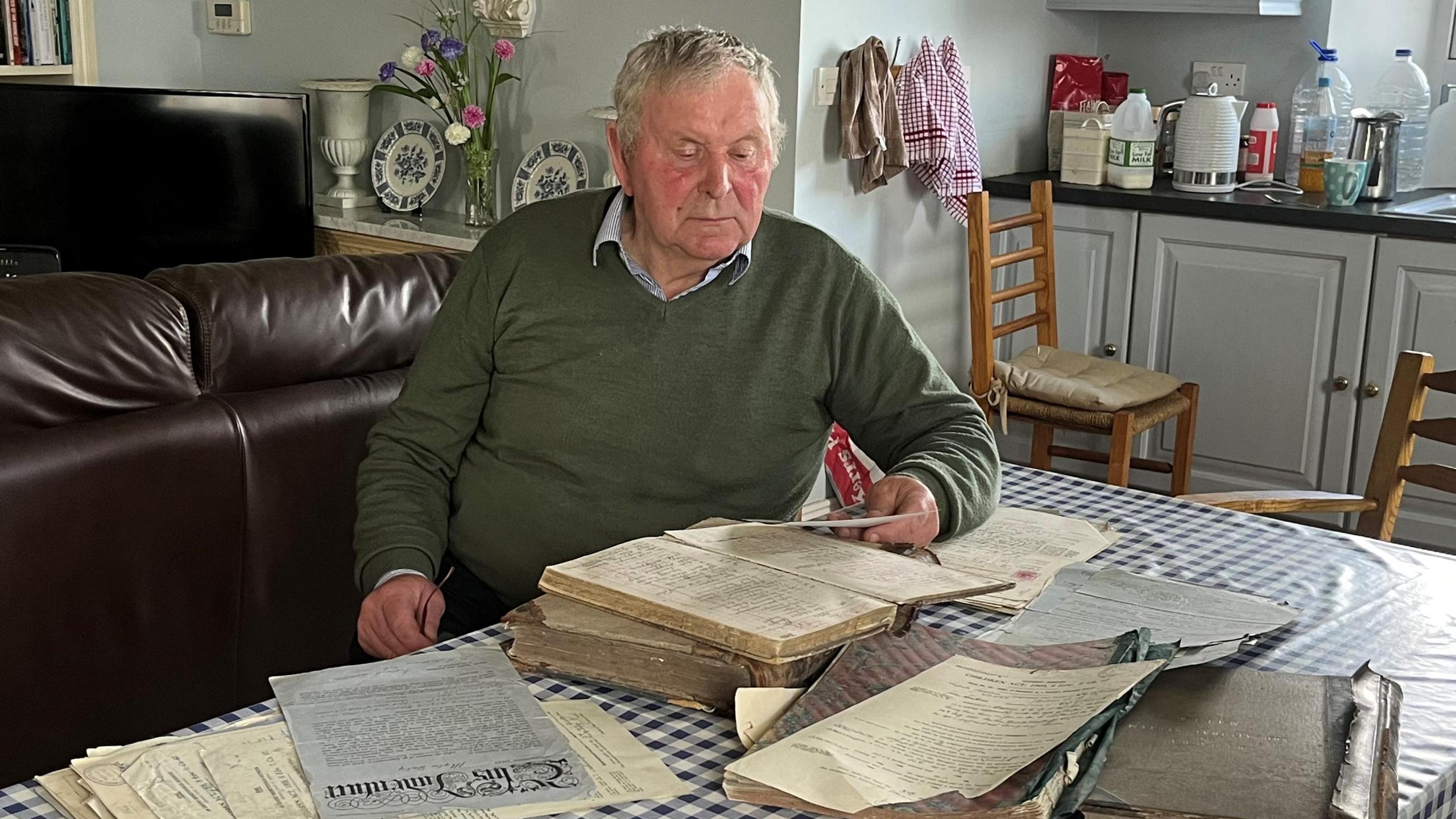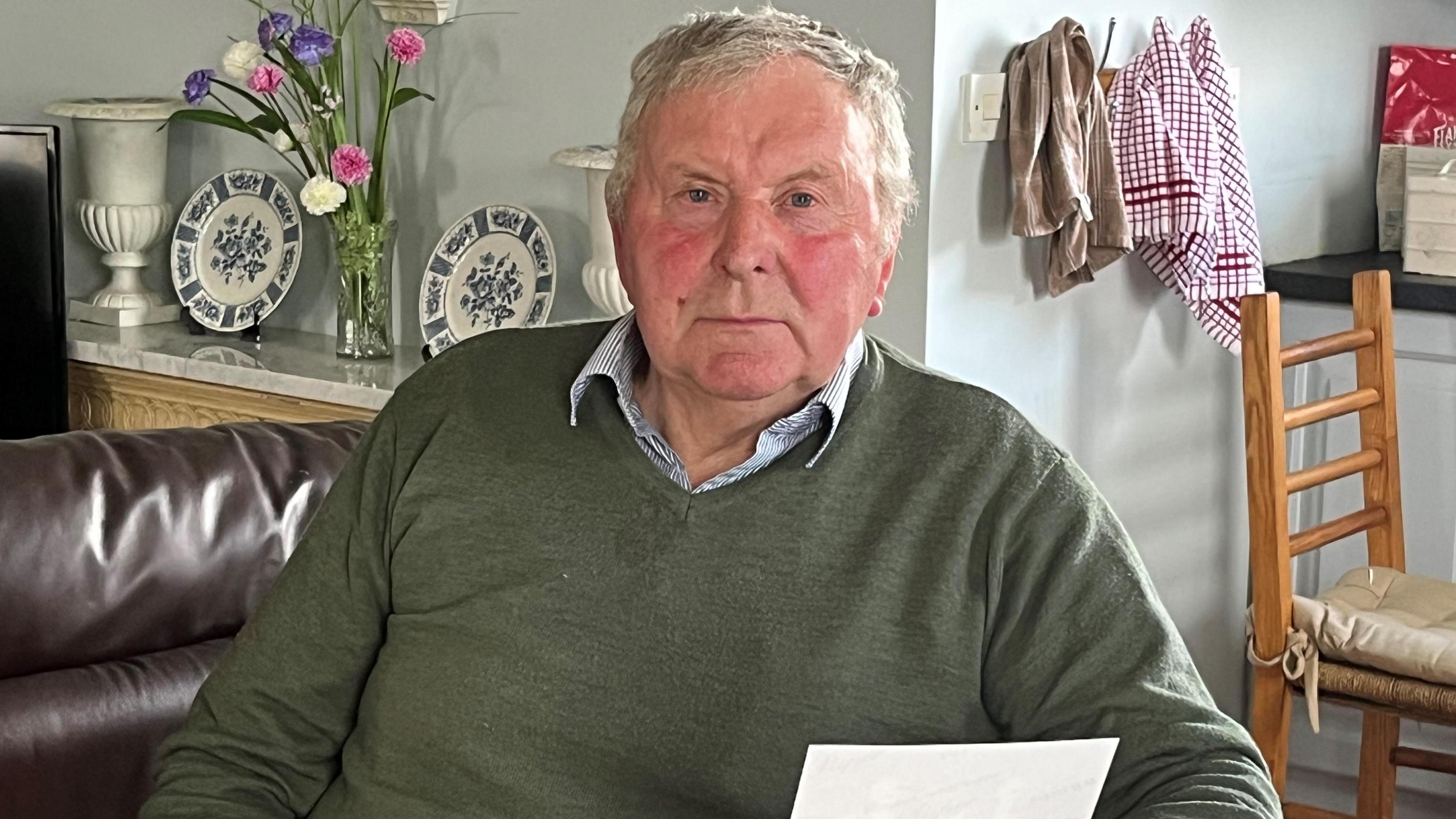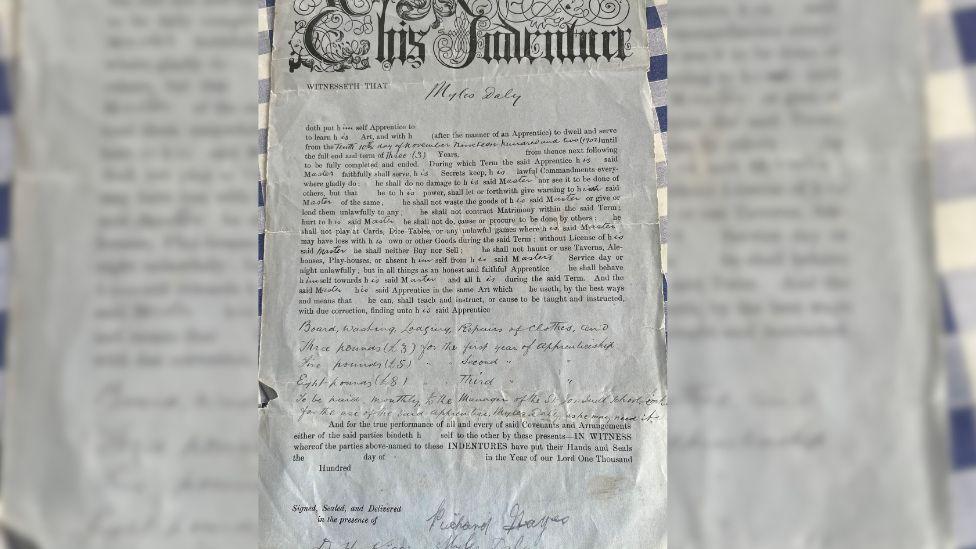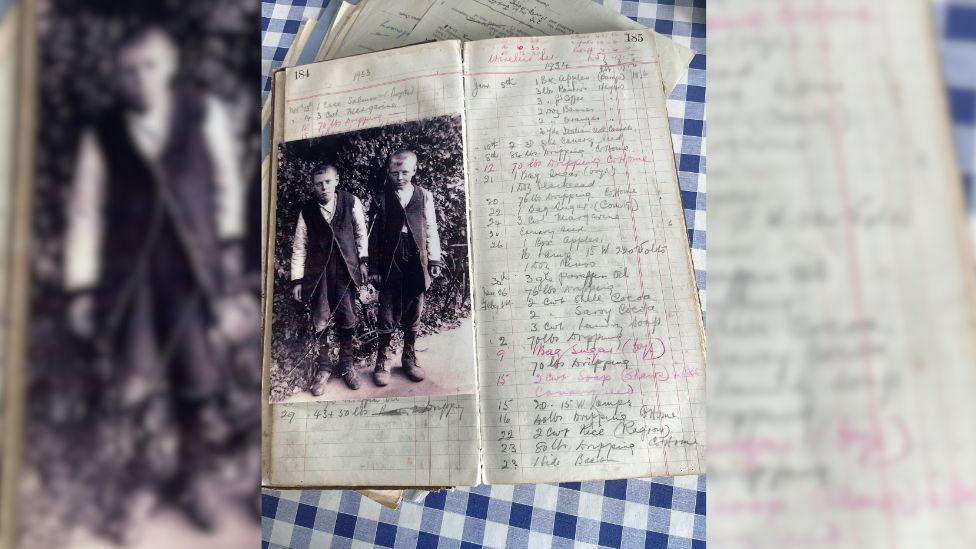Christian Brothers accused of engaging in 'slave trade'

- Published
A 74-year-old County Limerick victim of child sex abuse by Christian Brothers has accused the congregation of having been engaged in the "slave trade".
Tom Wall was just three when he was sent by court order to an industrial school in the village of Glin after his unmarried mother left a mother-and-baby home in nearby Newcastle West.
Industrial schools were established in the mid-19th Century and often run by religious orders to care for neglected, orphaned or abandoned children.
The Christian Brothers opened their first school in 1802 to provide education and help the poor.
In 2009, they issued an apology, following a damning public inquiry into child abuse in Catholic-run institutions in the Republic of Ireland.
The congregation said it accepted the findings of the Ryan Commission "with shame" and was "deeply sorry for the hurt" it had caused through abuse and its failure to respond to abuse allegations.

Tom Wall said documents kept by the Christian Brothers show evidence of slavery
Mr Wall, who remained a pupil at Glin until he was 16, worked for the brothers for another seven years until the order decided to leave the area in 1973.
He said he asked the brother in charge to be allowed to keep some of the documents that he had been asked to burn, as a personal memento of his years there.
He is adamant that the brother agreed to his request.
Mr Wall, who has written about his sexual abuse from the age of eight to 15, says the documents he kept include evidence of "slavery".
Those who left the school at around the age of 16, he added, were "booked out" to "masters" for three years as indentured labour.

Indentured or unpaid labour was more common in the past than it is now
Indentured or unpaid labour was more common in the past than it is now.
"They are not allowed to marry; they are not allowed to go to the cinema; they must not divulge their master's secrets; they cannot absent themselves from their masters," he continued, quoting from a 1902 contract which the BBC has seen.
"Their wages for the first three years have to go to the Christian Brothers in Glin. It's a total slave trade."
At that time, British rule extended over the whole of Ireland.
Order wants records back
The Congregation of the Christian Brothers disputes that Tom Wall was allowed to keep the documents in 1973 and is seeking their return.
The order said it wants the records for its archive.
Its leader in Ireland, Brother Edmund Garvey, said: "The European Province of Christian Brothers neither had nor has any vested interest in seeking the return of the Glin documents for any reason save to ensure that our archives are complete as the documentation contains important family history, which we believe would be helpful in assisting any inquiries from former residents."
He said the brothers would have no objection to the original papers being donated to a university or the Irish state.
But Mr Wall responded: "Any organisation involved in child abuse and rape shouldn't hold records of child abuse and rape."
He said that among the items he burned include written attempts by family members to contact children.
He added that his own mother tried to contact him four times.

Documents in Tom Wall's possession include photographs of boys who attended the industrial school at Glin, County Limerick, and records of purchases made by the Christian Brothers
The issue of the ownership of the documents is set to be decided in a civil court case in Limerick.
After he left the brothers' employment, Mr Wall worked for 40 years at Glin Castle, where he was head gardener for Desmond FitzGerald, the last Knight of Glin, a member of the aristocratic Anglo-Norman FitzGerald dynasty.
The castle and grounds are now owned by the late knight's eldest daughter, Catherine, who is married to the English actor Dominic West.